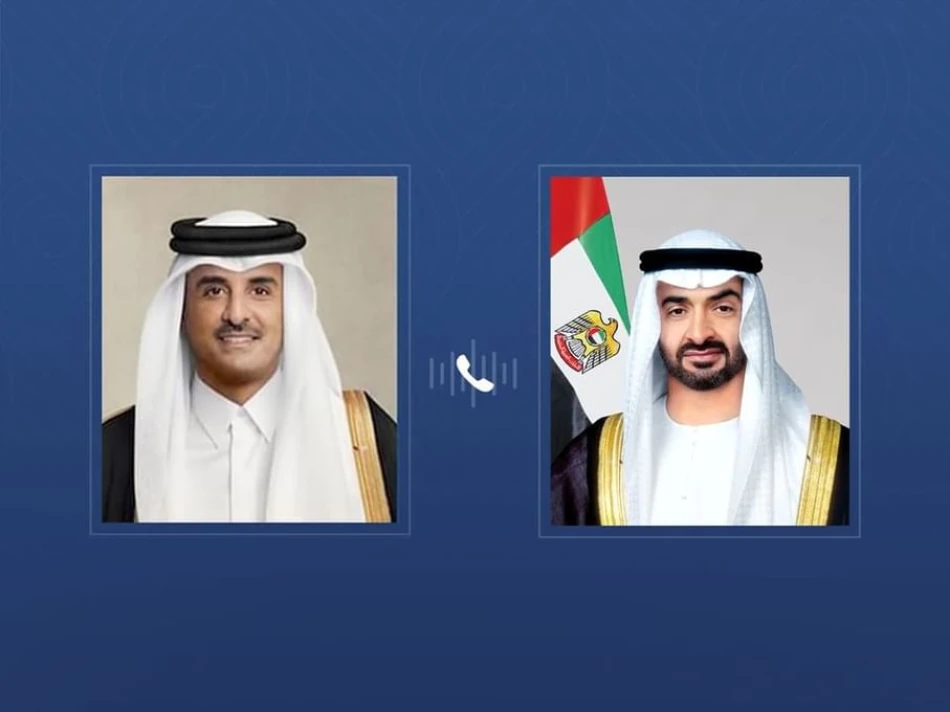
UAE President Expresses Solidarity with Qatar After Israeli Aggression
UAE Stands Firm with Qatar Against Israeli Strike, Signaling Gulf Unity Amid Regional Tensions
UAE President Sheikh Mohammed bin Zayed Al Nahyan has publicly condemned an Israeli attack on Qatari territory, marking a significant diplomatic moment that underscores growing Gulf solidarity despite the UAE's own normalization ties with Israel. The phone call between the Emirati and Qatari leaders represents a careful balancing act as Gulf states navigate complex regional alliances while defending territorial sovereignty principles.
High-Level Diplomatic Response
In a direct phone conversation with Qatar's Emir Sheikh Tamim bin Hamad Al Thani, Sheikh Mohammed bin Zayed expressed the UAE's "complete solidarity" with Qatar following what Abu Dhabi characterized as an Israeli aggression on Qatari soil. The UAE leader emphasized his country's support for all measures Qatar might take to preserve its sovereignty, security, and territorial integrity.
The timing and public nature of this diplomatic outreach signals the UAE's recognition that regional stability transcends bilateral relationships with Israel, even as the Emirates maintains its Abraham Accords partnership established in 2020.
Strategic Implications for Gulf Relations
Beyond the Qatar Blockade Era
This show of support marks a continued evolution in UAE-Qatar relations, which have steadily improved since the 2021 Al-Ula Declaration ended the three-year Gulf diplomatic crisis. The UAE's immediate backing of Qatar against external aggression demonstrates how quickly former adversaries can unite when facing shared regional threats.
Balancing Act with Israel
The UAE's position creates a nuanced diplomatic challenge. While maintaining its normalization agreement with Israel—which has brought significant economic and technological benefits—Abu Dhabi is clearly drawing red lines around attacks on fellow Gulf Cooperation Council members. This approach suggests the UAE views its Abraham Accords relationship as conditional rather than unconditional.
Regional Security Architecture
Sheikh Mohammed bin Zayed's emphasis that the alleged Israeli action "violates Qatar's sovereignty and all international laws and norms" while undermining regional security reflects broader Gulf concerns about escalating tensions. The statement positions the UAE as a defender of international law and territorial integrity—principles that resonate across the Arab world regardless of individual countries' relationships with Israel.
Market and Geopolitical Calculations
For investors and regional observers, this diplomatic alignment suggests several key trends. Gulf states are prioritizing regional stability over individual bilateral relationships, potentially affecting defense cooperation agreements and energy partnerships. The swift, public nature of the UAE's support also indicates sophisticated crisis management protocols among GCC members.
The incident may also influence ongoing regional security discussions, particularly as Gulf states continue diversifying their defense partnerships while managing relationships with both traditional allies and newer partners. This balancing act will likely define Middle Eastern diplomacy as regional powers navigate an increasingly complex geopolitical landscape.
Most Viewed News

 Sara Khaled
Sara Khaled






